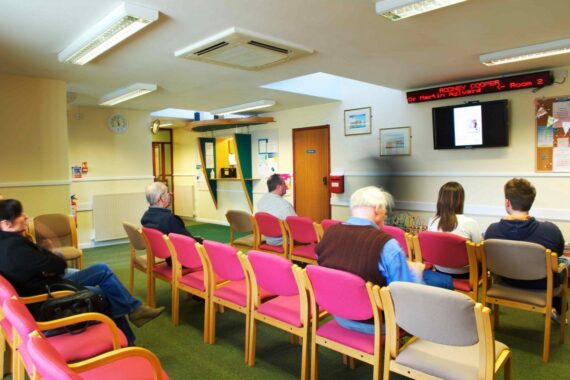‘The hard work of GPs in Wales has been overlooked’


In a series of articles on the state of general practice in the devolved nations, Katherine Price looks at the challenges facing Welsh GPs
Later this year, general practice in Wales is likely to see the most major contract reform since 2004.
The result of 18 months’ of discussions between the BMA, the Welsh Government and health boards should come together, with the delivery of a new ‘Unified GMS contract’ from October 2023. GP leaders say key steps have already been taken, with an emphasis on moving away from box ticking and heavy admin burdens, as well as the consolidation of funding processes into the global sum.
While this marks a positive step forward, BMA Wales says longstanding issues relating to ‘chronic underfunding of GMS’ continue to plague the profession.
‘Some of the current areas of focus in Wales are, as always, workload, workforce, access and morale among GPs. There isn’t an access issue in general practice, there’s a capacity issue,’ says Dr Gareth Oelmann, chair of the GP Committee in Wales. ‘…Until these are addressed, it’s going to be increasingly difficult to bridge the demand capacity gap.’
Similar to their English counterparts, GPs in Wales also face major challenges with premises. One recent example reported in the local press highlighted how a single-handed GP is facing an ever-increasing list of patients due to other local practice closures, but despite a wish to expand said he had been unable to secure any financial support to move to new premises.
A task and finish group promised in the 2022/23 contract agreement is being set up to identify and ‘hopefully fund’ some solutions to the premises challenge, Dr Oelmann says, adding that some of the key issues include huge service charges for leased premises, lack of improvement grants for owner-occupiers, and longstanding concerns over last person standing liability.
‘There are also capacity issues in the GP estate in accommodating the increased move to deliver a higher proportion of education and training across the multi-disciplinary team in a primary care setting,’ he adds.
‘It’s important to enable the envelope of workforce that are trained with the nuances of primary care to enlarge, but competing restraints with regards to the amount of space and appropriate consultation rooms to be able to do that at a finite level is a concern.’
Another thing ‘on everybody’s mind’, says Dr Oelmann, is increasing expenses. Practices in Wales have been affected by the soaring energy costs and the removal of Government support for businesses. Without ‘appropriate financial settlements’ and fair pay rises for staff, there’s a risk to the sustainability and viability of many practices, he adds.
Support for practices at risk of closure has also recently been criticised by Welsh GP leaders, with a motion at the LMCs conference earlier this year stating that the current sustainability process is ‘not fit for purpose’ and that support from local health boards for practices at risk of closure is ‘at best inadequate and at worst non-existent’. The motion was passed unanimously.
It follows a growing number of practices handing back their contracts and being taken over by health boards, with the latest figures showing that the number of GP partnerships has fallen to 386 from 399 in 2020 and 420 in 2018.
Dr Oelmann fears that the recent announcement that Welsh GPs and their staff would be excluded from the NHS Wales pay uplift will also negatively impact practice viability. Welsh NHS staff including secondary care doctors and hospital staff are to receive an additional 3% pay uplift, however GPs and their staff were excluded as they accepted a 4.5% pay uplift, as per recommendations from the Doctors and Dentist Review Body, earlier in the year as part of the GMS contract which is negotiated each year with Welsh Government.
‘This announcement is a huge disappointment to the BMA as a whole and our GP members,’ says Dr Oelmann. ‘It is demoralising for general practitioners who feel their hard work and contribution to healthcare in Wales has been overlooked.’
He also warns that widening the differential of pay between primary and secondary care could impact recruitment and retention – given that GP practices compete for the same staff as health boards: ‘…in a competitive market, many practices will feel no choice but to match the enhanced pay levels in secondary care, increasing the cost pressures on practices, and this needs to be mitigated ahead of our usual contract negotiations.’
The GPC has written to the Welsh government regarding the pay uplift and is anticipating a response ‘in the very near future’, Dr Oelmann concludes, but he adds that the GP workforce is already burnt out and struggling to cope, and this has only served to further demoralise the profession.
This article was amended on 8 April 2023 to reflect that GPs in Wales negotiate a new GMS contract each year with Welsh Government and therefore it is not a multi-year pay-deal as was incorrectly stated
Pulse October survey
Take our July 2025 survey to potentially win £1.000 worth of tokens











